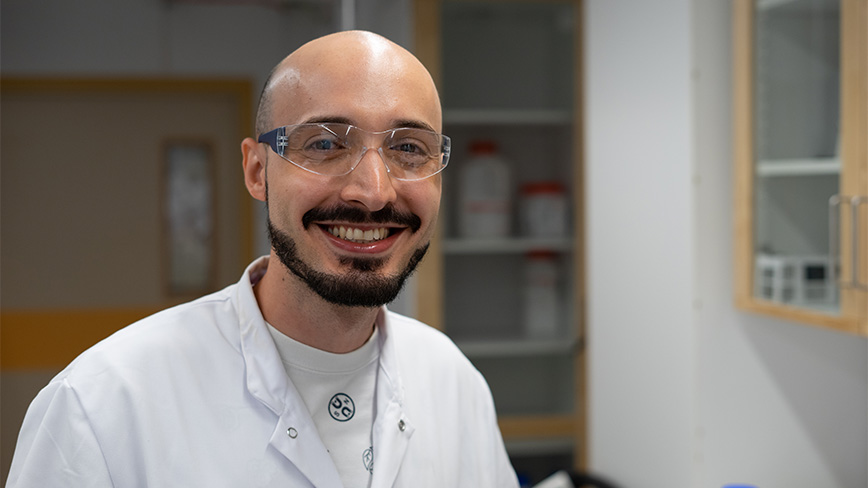Rewarding being a mentor to future researchers

During the summer, postdoc researcher Antonio Capezza has mentored two unusually young KTH researchers - high school students Klara Wagenius and Mathias Chang. Together, they have researched the use of plant-based materials to produce product alternatives that currently contain non-sustainable plastics.
”I have always enjoyed teaching, so I thought this could be a cool opportunity for me to give back in some way at such early stage,” says Antonio Capezza.
The students participated in Rays’s summer research school, which is aimed at students who are in their second year of high school and who have a strong interest in science, technology and mathematics. During two weeks, the participants carry out projects at KTH, SU or KI. The goal is to give the students an understanding of what it is like to work as a researcher.
First insight in research
”Part of our mission as researchers is to give back to society, this is actually a stated goal from the KTH President. Our job is not only scientific research, we must also focus on teaching and education. To meet these young students, in their second year in High School, is really rewarding. This will be their first insight in research,” says Antonio Capezza.

His research is about how to use naturally based materials towards absorbents in sanitary products. The goal is to take proteins and cellulose from industrial side-streams and create materials that can function as a replacement to plastics and be totally biodegradable and safe for the environment and humans.
”The first step for the students has been to understand the problem. Sometimes you are not aware that products like sanitary pads and nappies are made out of plastic. The next step for them has been to make their own material and to learn about the testing process, to see how absorbent the material is. They have also analysed how the material behaves in simulated nature, to make sure that it is biodegradable and doesn’t produce micro plastics.”
How’s it been going?
“They have been really enthusiastic and I must say it has been going very smoothly. You can feel that this is something they really want to do. They ask a lot of questions and are very curious – it’s been fantastic[A1] .”
Great interest from universities

The summer research school is based on researchers working as mentors, but the arrangement itself is managed by university students such as Julia Mårtensson (Computer Technology at Chalmers) and Ann-Kristin Malz (Theoretical Physics at the University of Glasgow).
“There is a great interest from universities in getting young people into research and giving them the opportunity to try it out. So we have found very interesting projects and all the students seem super happy with the projects they have been given,” says Ann-Kristin Malz and Julia Mårtensson agrees:
“It is thanks to mentors like Antonio who want to stand up and inspire future researchers like us that we can do this,” she says.
Read more: Summer school at KTH gave students the research bug
Text: Jon Lindhe and Åsa Karsberg

